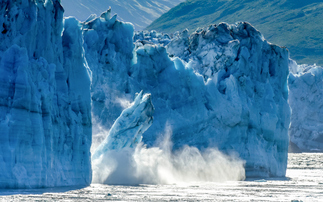The current pandemic crisis offers a chance to reimagine our approaches to managing natural resources, argues Martin Noponen of the Rainforest Alliance
On Saturday 21 March, the world will be celebrating the UN's International Day of Forests. But instead of stepping out into nature or joining one of the many activities planned to recognise this day, many of us are - voluntarily or not - staying put in our homes, amid the bleak global fallout from the coronavirus outbreak.
It is ironic to think, then, that the two are closely interconnected. Our voracious demand for crops, timber and other resources has led and still leads to the degradation and destruction of entire landscapes, causing disruptions to natural ecosystems and loss of biodiversity. This encroachment into natural frontiers means that animal-human interactions now exist which did not previously, enabling pathogens formerly exclusive to animal species to jump to a new, unsuspecting, human host. It is now well understood that many emerging infectious diseases, such as the novel Covid-19, originate from animals. Habitat destruction further exacerbated by climate change and fueled by economic growth is therefore providing the perfect opportunity for new disease emergence.
Likewise, scientists and others have long been alerting us to the climate crisis, and in particular, its need for a swift and effective response. A fundamental piece of the puzzle in that response is tackling deforestation and restoring forests.
Yet the climate emergency hasn't received the same sort of urgent and immediate response which the new coronavirus emergency has. For instance, many of the world's biggest brands are set to fail to meet their 2020 deforestation commitments, despite making clear their ambition for sustainable supply chains.
In stark parallel, we've been jolted into almost immediate action by continuous information flows about the coronavirus outbreak, with its effects on entire countries and their populations serving as a signal for action to governments and individuals, even if they themselves weren't yet experiencing its effects.
When facing the new coronavirus crisis, everyone has a role to play - governments have had to quickly develop and implement new policies; many organisations have had to transition into remote ways of working; and individual actions have, more than ever before, been crucial for the wider public good, with individuals being forced to completely change their daily routines in an effort to protect those in high-risk groups.
It has been very encouraging to see how communities, industry and individuals have rallied together over the last weeks to support each other, focusing on the things that really matter in order to maintain some sense of order and joint ambition to tackle the crisis.
Perhaps the global system had reached breaking point, like a computer system overloading with processes running alongside each other without being able to connect and coordinate. Perhaps it was time to shut down and reboot. Whatever the reason, we should see this as a chance to rethink and reimagine our approaches to managing natural resources. How we interact. What really is of value to us. It is time to pause and reflect on how to be the best stewards for a healthy and resilient planet.
We all question what the long-term economic effects of the pandemic will be. Early analyses from China show a significant drop in greenhouse gas emissions and air pollution. But will efforts to revive the global economy reverse this effect and accelerate the destruction of natural ecosystems - and in turn climate change - in a race to make up for the economic losses endured? Experts are warning that efforts to combat climate change could be jeopardised by compromising global investments in clean energy and weakening industry environmental goals such as to reduce greenhouse gas emissions. Clearly, it will be key for governments, industry and the private sector to enact green growth policies and realise the interconnectivity of human, economic and natural systems that determine planetary health.
We have all the necessary tools to achieve SDG15: to protect, restore and promote sustainable use of terrestrial ecosystems, sustainably manage forests, combat desertification, and not just halt but reverse land degradation and biodiversity loss. So let's reimagine how society works, from human interaction to political and economic infrastructure, and from natural resource management and ecosystem protection to life on land.
As an article on Global Landscape Forum put it earlier this week: "Procrastination, short-termism and scientific denial are the hallmarks of our inaction on climate change - but the coronavirus provides an opportunity for us to kick those long-standing habits."
As our life on land navigates an uncertain period, we must learn to pay nature the necessary respect it deserves.
Martin Noponen is environment director at Rainforest Alliance








